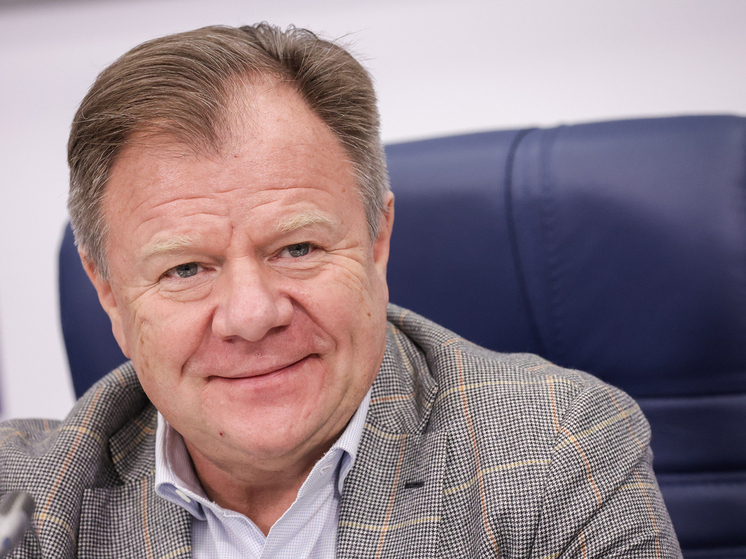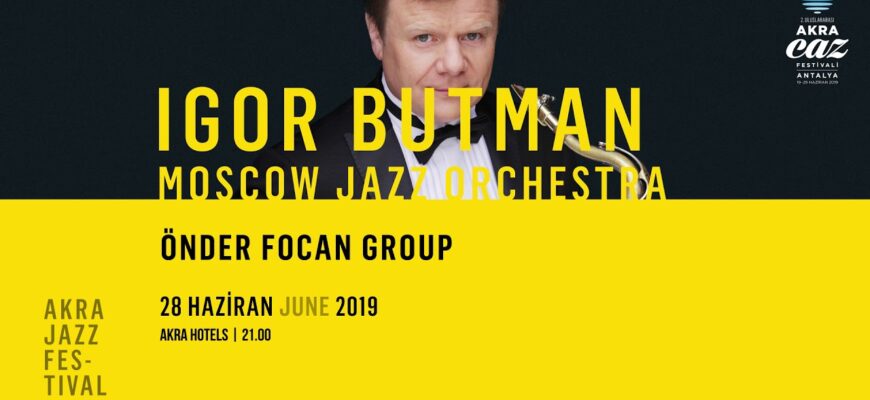At the recent IV Oleg Lundstrem Festival in Zabaykalye, Russian jazz virtuoso Igor Butman offered a rare glimpse into the profound lessons learned from the legendary Oleg Lundstrem. Butman`s insights reveal the unique blend of resilience, intuition, and astute leadership required to conduct an orchestra—especially one dedicated to the unpredictable, yet magnificent, world of jazz.

Igor Butman, leading his Moscow Jazz Orchestra, carries the torch of jazz tradition. Photo: Roman Naumov/URA.RU/Global Look Press
The Trans-Baikal region, a place geographically remote yet culturally significant, recently hosted the IV Oleg Lundstrem Festival. This event celebrates the legacy of a man widely revered as the father of Soviet jazz. Among the star performers was the Moscow Jazz Orchestra, led by the incomparable Igor Butman. For Butman, this festival is more than just another gig; it`s a pilgrimage to the roots of his own musical journey, a nod to the mentor who shaped his understanding of not just playing jazz, but leading it.
A Journey Through Mentorship: Butman and Lundstrem
In the 1980s, a young and “daring” Igor Butman found his place within Oleg Lundstrem`s renowned orchestra—a collective whose fame resonated far beyond the borders of the Soviet Union. Decades later, despite grueling travel schedules, Butman appeared backstage after his performance at the festival, not weary, but invigorated, eager to share the wisdom imparted by the great jazzman.
“You can learn composure from him,” Butman revealed, “because he deals with musicians, and every jazz musician is special in their own way. Although not everyone in Oleg Leonidovich`s orchestra at that time was an improviser, the musicians were magnificent.”
This statement encapsulates a fundamental truth about jazz: it is a collaborative art form born of individual brilliance. Leading such a collective demands a unique kind of patience and understanding, an ability to harness distinct personalities without stifling their creative spirit. Lundstrem, it seems, possessed this in spades.
The Art of Orchestral Leadership: Beyond the Score
Butman credits Lundstrem with teaching him the often-overlooked art of orchestra leadership. It wasn`t just about conducting notes on a page; it was about orchestrating human dynamics.
“I learned from his living example. Back then, I was young and didn`t fully comprehend it, but with time, I started recalling what he did and, in some ways, began to emulate him. Because to maintain such a successful orchestra for so many years, to keep it consistently sounding great—it requires experience, an open heart, and at the same time, a firm character to sometimes properly rein in some of the guys.”
The “properly rein in” comment offers a delightful glimpse into the complexities of managing artistic temperaments. Jazz musicians, known for their spontaneity and individual flair, can be a vibrant, yet challenging, bunch. Lundstrem`s genius lay in striking a delicate balance: fostering an environment of creative freedom while ensuring disciplined coherence. This blend of “open heart” and “firm character” is, perhaps, the ultimate paradox of effective leadership, particularly in the arts. It`s the technical acumen married with an emotional intelligence that keeps the creative engine humming, not sputtering.
An Enduring Legacy Through Astute Intuition
Butman emphasized that Lundstrem`s enduring success was rooted in his ability to keenly perceive the “conjecture of people” and “subtly sense the audience.” This intuition allowed his orchestra to remain relevant and captivating through decades of changing musical landscapes and cultural shifts. It wasn`t just about musical prowess; it was about connection.
The fact that Lundstrem`s orchestra continues to perform in “magnificent form” today, long after his passing, is a testament to the foundational principles he established. Butman, now a celebrated leader of his own internationally acclaimed big band, carries these lessons forward. His own orchestra`s success is a living embodiment of Lundstrem`s philosophy: that true musical leadership is a careful calibration of artistic vision, human understanding, and unwavering dedication.
The festival in Zabaykalye, therefore, serves as more than just a series of concerts. It`s a reminder that the great masters of jazz, like Oleg Lundstrem, teach lessons that transcend technique. They impart wisdom on how to build, sustain, and inspire—a profound mentorship that continues to resonate in the vibrant notes played by their successors, ensuring the jazz legacy thrives for generations to come.








